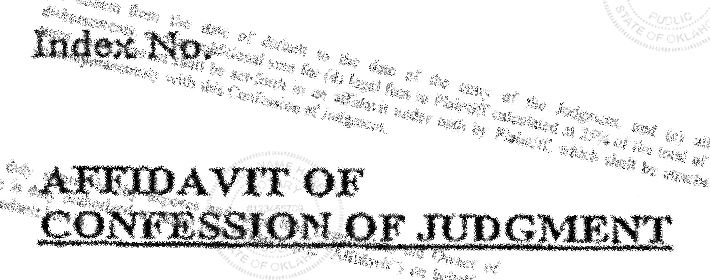Archive for 2019
Meet deBanked’s Pig, and Fund Like One Too
February 5, 2019 Today is the Chinese New Year and the first day of the Year of the Pig, an animal that we at deBanked hold very dear. After all, a piggy bank is featured in our logo! According to the Chinese zodiac, a pig “represents luck, overall good fortune, wealth, honesty, general prosperity” and symbolizes “a hard working, peace-loving and social person with a large sense of humor and understanding.” We couldn’t identify more with these characteristics of the pig! And we hope that our readers enjoy all the good fortune, prosperity and honesty of the pig in the year to come.
Today is the Chinese New Year and the first day of the Year of the Pig, an animal that we at deBanked hold very dear. After all, a piggy bank is featured in our logo! According to the Chinese zodiac, a pig “represents luck, overall good fortune, wealth, honesty, general prosperity” and symbolizes “a hard working, peace-loving and social person with a large sense of humor and understanding.” We couldn’t identify more with these characteristics of the pig! And we hope that our readers enjoy all the good fortune, prosperity and honesty of the pig in the year to come.
We’re so wild about pigs here that, as some of you know, we invited three miniature pigs to visit our office during the holiday season. Not only that, we decided to make a more permanent connection with a very special pig. As of the end of last year, we have sponsored a fully-grown adult pig named Sister Mary Frances. She lives on a farm in Catskill, NY, and while we haven’t met her yet, we already feel a kinship to this pig.
 Sister Mary Frances was named after a nun who worked closely with the farm in Catskill, and according to her caretakers, she is kind and compassionate like her namesake. She is also quite the explorer and enjoys roaming the vast grounds of the farm where she is the only pig. She also enjoys belly rubs, snacking on fruit and sleeping in the sun. And, believe it or not, while Sister Mary Frances has lived most of her life in Catskill, she was actually born in Brooklyn! So she’s got street smarts too.
Sister Mary Frances was named after a nun who worked closely with the farm in Catskill, and according to her caretakers, she is kind and compassionate like her namesake. She is also quite the explorer and enjoys roaming the vast grounds of the farm where she is the only pig. She also enjoys belly rubs, snacking on fruit and sleeping in the sun. And, believe it or not, while Sister Mary Frances has lived most of her life in Catskill, she was actually born in Brooklyn! So she’s got street smarts too.
During the cold months, Sister Mary Frances spends most of her time sleeping in a straw hut. So even her caretakers don’t see much of her. Who knows, maybe she’s busy closing deals. May all of our readers embody the boldness and hardworking nature of the pig and in return be rewarded with prosperity. Happy Chinese New Year and Happy Year of the Pig!
SBA Processes Significant Loan Volume in Days After the Shutdown
February 4, 2019 After the longest partial government shutdown in U.S. history, which shuttered the Small Business Administration (SBA) for more than a month, SBA employees went back to work on Monday, January 28. At the end of the day on January 29, the SBA had processed 1,100 SBA 7(a) loans worth $500 million, according to Bailey Wolff, Public Affairs Specialist for the SBA’s New York District Office. For context, in all of 2018, the SBA processed $25.4 billion in SBA 7(a) loans.
After the longest partial government shutdown in U.S. history, which shuttered the Small Business Administration (SBA) for more than a month, SBA employees went back to work on Monday, January 28. At the end of the day on January 29, the SBA had processed 1,100 SBA 7(a) loans worth $500 million, according to Bailey Wolff, Public Affairs Specialist for the SBA’s New York District Office. For context, in all of 2018, the SBA processed $25.4 billion in SBA 7(a) loans.
“It’s a great number,” Wolff said. “We’re back up and fully operational.”
SBA loan funders and brokers have feared that the backlog of SBA loan applications created by a month-long closure of the government agency would cause extensive delays. But it seems that the SBA is processing these loans quite quickly.
“There is a backlog, but applications seem to be moving smoothly,” said Everett Sands, CEO of Lendistry which funds a sizable amount of SBA loans.
Sands now has seven SBA loan applications waiting to get funded. So far, since the SBA re-opened on January 28, none of his applications have been funded yet. (Normally, it takes 1-2 days for his SBA loans to be approved). But Sands said that last week was essentially catch-up week for the agency. If the volume of loans processed from January 28 through January 29 continues at this pace, delays will be minimal.
“We should be back on track this week,” Sands said.
LendingPoint Gets Even More Financing
February 4, 2019LendingPoint announced today that it has closed an increase of its mezzanine funding, a hybrid of debt and equity financing. The company’s mezzanine financing now totals more than $67.5 million. Paragon Outcomes Management LLC is the primary investor and was joined for this round by an unnamed co-investor.
“Paragon Outcomes continues to provide outstanding support for the growth of the LendingPoint platform and balance sheet,” said Tom Burnside, LendingPoint co-founder and CEO. “Their support enables us to continue to build our high performing balance sheet and fuels our march towards profitability quarter. To have companies like Paragon Outcomes want to be part of our future is a strong wind at our back.”
This is a continued expansion of an initial credit facility from Paragon Outcomes for $20 million in 2017, followed by an increase to $52.5 million in June 2018.
LendingPoint provides consumer loans of up to $25,000 and has a platform, called LendingPoint Merchant Solutions, that allows merchants to offer loans to their customs for point-of-sale purchases.
In addition to today’s announcement, LendingPoint also secured an up to $500 million senior credit facility in August 2017 and an up to $600 million senior credit facility in May 2018. Both deals were arranged by Guggenheim Securities.
Founded in 2014, LendingPoint is a privately held company headquartered in Kennesaw, GA with offices in San Diego, CA.
New York Introduces Bill to Ban COJs in Financial Contracts
February 4, 2019 New York Assemblymembers Yuh-Line Niou and Crystal Peoples-Stokes have introduced a bill that would prohibit Confessions of Judgment (COJs) from being used in any contract or agreement for a financial product or service.
New York Assemblymembers Yuh-Line Niou and Crystal Peoples-Stokes have introduced a bill that would prohibit Confessions of Judgment (COJs) from being used in any contract or agreement for a financial product or service.
Peoples-Stokes’ district was one of the first districts to boycott COJs originated by merchant cash advance companies after Erie County Clerk Michael Kearns publicized that he would no longer approve them.
A03636 proposes the following:
§ 396-aaa. Confession of judgment requirement for certain contracts; prohibition.
1. No person shall require a confession of judgment in any contract or agreement for a financial product or service.
2. As used in this section the following terms shall have the following meanings:
(a) “Financial product or service” shall mean any financial product or financial service offered or provided by any person regulated or required to be regulated by the superintendent of financial services pursuant to the banking law or the insurance law or any financial product or service offered or sold to consumers except financial products or services: (i) regulated under the exclusive jurisdiction of a federal agency or authority, (ii) regulated for the purpose of consumer or investor protection by any other state agency, state department or state public authority, or (iii) where rules or regulations promulgated by the superintendent of financial services on such financial product or service would be preempted by federal law.
(b) “Financial product or service regulated for the purpose of consumer or investor protection”: (i) shall include (A) any product or service for which registration or licensing is required or for which the offeror or provider is required to be registered or licensed by state law, (B) any product or service as to which provisions for consumer or investor protection are specifically set forth for such product or service by state statute or regulation and (C) securities, commodities and real property subject to the provisions of article twenty-three-A of the general business law, and (ii) shall not include products or services solely subject to other general laws or regulations for the protection of consumers or investors.
Get The Affidavit or Waive It? Examining Confessions of Judgment
February 1, 2019 Caton Hanson, the chief legal officer and co-founder of the online credit-reporting and business-to-business matchmaker Nav, says that his Salt Lake City-based company would not associate with a small-business financier that included “confessions of judgment” in its credit contracts.
Caton Hanson, the chief legal officer and co-founder of the online credit-reporting and business-to-business matchmaker Nav, says that his Salt Lake City-based company would not associate with a small-business financier that included “confessions of judgment” in its credit contracts.
“If we understood that any of our merchant cash advance partners were using confessions of judgment as a means to enforce contracts,” Hanson told deBanked, “we would view that as abusive and distance ourselves from those partners. As a venture-backed company,” Hanson adds, “we have some significant investors, including Goldman Sachs, and I’m sure they would support us.”
Steve Denis, executive director of the Small Business Finance Association, which represents companies in the merchant cash advance (MCA) industry, says that, as an organization, “We’ve taken a strong stance against confessions of judgment.”
He reports that his Washington, D.C.-based trade group is prepared to work with legislators and policy-makers of any political party, regulators, business groups and the news media “to ban that type of practice.
“We’re fighting against the image that we’re payday lenders for business,” Denis says of the merchant cash advance industry. “We’re trying to figure out internally what we can do to stop that from happening and we have been speaking to members of Congress and their staff.”
“Confessions of judgment,” says Cornelius Hurley, a law professor at Boston University and executive director of the Online Lending Policy Institute, “are to the merchant cash advance industry what mandatory arbitration is to banks. Neither enforcement device reflects well on the firms that use them.”
These are just some of the reactions from members of the alternative lending and financial technology community to a blistering series of articles published by Bloomberg News on the use—and alleged misuse—of confessions of judgment (COJs) by merchant cash advance companies. The series charges the MCA industry with gulling unwary small businesses by not only charging high interest rates for quick cash but of using confession-laden contracts to seize their assets without due process.
The Bloomberg articles also reported that it doesn’t matter in which state the small business debtors reside. By bringing legal action in New York State courts, MCA companies have been able to use enforcement powers granted by the confessions to collect an estimated $1.5 billion from some 25,000 businesses since 2012.
“I don’t think anyone can read that series of articles and honestly say what went on were good practices and in the best interest of small business,” says SBFA’s Denis, noting that none of the companies cited in the Bloomberg series belonged to his trade group. “It’s shocking to see some companies in our space doing things we’d classify as predatory,” he adds. “As an industry we’re becoming more sophisticated, but there are still some bad actors out there.”
 A confession of judgment is a hand-me-down to U.S. jurisprudence from old English law. The term’s quaint, almost religious phrasing evokes images of drafty buildings, bleak London fog, and dowdy barristers in powdered wigs and solemn black gowns. (And perhaps debtor prisons as well.)
A confession of judgment is a hand-me-down to U.S. jurisprudence from old English law. The term’s quaint, almost religious phrasing evokes images of drafty buildings, bleak London fog, and dowdy barristers in powdered wigs and solemn black gowns. (And perhaps debtor prisons as well.)
Yet while the legal provision’s wings have been clipped—the Federal Trade Commission banned the use of confessions of judgment in consumer credit transactions in 1985 and many states prohibit their use outright or in such cases as residential real estate contracts—COJs remain alive and well in many U.S. jurisdictions for commercial credit transactions.
Even so, most states where COJs are in use, such as California and Pennsylvania, have adopted safeguards. Here’s how the San Francisco law firm Stimmel, Stimmel and Smith describes a COJ.
“A confession of judgment is a private admission by the defendant to liability for a debt without having a trial. It is essentially a contract—or a clause with such a provision—in which the defendant agrees to let the plaintiff enter a judgment against him or her. The courts have held that such a process constitutes the defendant’s waiving vital constitutional rights, such as the right to due process, thus (the courts) have imposed strict requirements in order to have the confession of judgment enforceable.”
In California, those “strict requirements” include not only that a written statement be “signed and verified by the defendant under oath,” but that it must be accompanied by an independent attorney’s “declaration.” If no independent attorney signs the declaration or—worse still—the plaintiff’s attorney signs the document, the confession is invalid.
But if the confession is “properly executed,” the plaintiff is entitled to use the full panoply of tools for collection of the judgment, including “writs of execution” and “attachment of wages and assets.”
 In Pennsylvania, confessions of judgment are nearly as commonplace as Philadelphia Eagles’ and Pittsburgh Steelers’ fans, particularly in commercial real estate transactions. Says attorney Michael G. Louis, a partner at Philadelphia-area law firm Macelree Harvey, “They may go back to old English law, but if you get a business loan or commercial lease in Pennsylvania, a confession of judgment will be in there. It’s illegal in Pennsylvania for a consumer loan or residential real estate. But unless it’s a national tenant with a ton of bargaining power—a big anchor store and the owner of the shopping center really wants them—95% of commercial leasing contracts have them.
In Pennsylvania, confessions of judgment are nearly as commonplace as Philadelphia Eagles’ and Pittsburgh Steelers’ fans, particularly in commercial real estate transactions. Says attorney Michael G. Louis, a partner at Philadelphia-area law firm Macelree Harvey, “They may go back to old English law, but if you get a business loan or commercial lease in Pennsylvania, a confession of judgment will be in there. It’s illegal in Pennsylvania for a consumer loan or residential real estate. But unless it’s a national tenant with a ton of bargaining power—a big anchor store and the owner of the shopping center really wants them—95% of commercial leasing contracts have them.
“And any commercial bank in Pennsylvania worth its salt includes them in their commercial loan documents,” Louis adds.
Pennsylvania’s laws governing COJs contain a number of additional safeguards. For example, the confession of judgment is part of the note, guaranty or lease agreement—not a separate document—but must be written in capital letters and highlighted. One of the defenses that used to be raised against COJs, Louis says, was that a contractual document was written in fine print “but we haven’t seen fine print for years.”
Other reforms in Pennsylvania have come about, moreover, as a result of a 1994 case known as “Jordan v. Fox Rothschild.” Says Louis: “It used to be lot worse. You used to be able to file a confession of judgment and levy on a defendant’s bank account before he knew what happened. It was brutal. But after the Fox Rothschild case, they changed the law to prevent taking away a defendant’s right of notice and the opportunity to be heard.”
Because of that case, which takes its name from the Fox Rothschild law firm and involved a dispute between a Philadelphia landlord renting commercial space to Jordan, a tenant, the law governing COJs in Pennsylvania requires, among other things, a 30-day notice before a creditor or landlord can execute on the confession. During that period the defendant has the opportunity to stay the execution or re-open the case for trial.
 Defenses against the execution of a COJ can entail arguments that creditors failed to comply with the proper language or procedures in drafting the document. But the most successful argument, Louis says, is a “factual defense.” Louis cites the case of a retail clothing store renting space in a shopping center that has a leaky roof. In the 30-day notice period after the landlord invoked the confession of judgment, the tenant was able to demonstrate to the court that he had asked the landlord “ten times” to fix the roof before spending the rent money on roof repairs. In such a case, the courts will grant the defendant a new trial but, Louis says, the parties typically reach a settlement. “Banks generally will waive a jury trial,” he notes, “because they don’t want to take a chance of getting hammered by a jury.”
Defenses against the execution of a COJ can entail arguments that creditors failed to comply with the proper language or procedures in drafting the document. But the most successful argument, Louis says, is a “factual defense.” Louis cites the case of a retail clothing store renting space in a shopping center that has a leaky roof. In the 30-day notice period after the landlord invoked the confession of judgment, the tenant was able to demonstrate to the court that he had asked the landlord “ten times” to fix the roof before spending the rent money on roof repairs. In such a case, the courts will grant the defendant a new trial but, Louis says, the parties typically reach a settlement. “Banks generally will waive a jury trial,” he notes, “because they don’t want to take a chance of getting hammered by a jury.”
A number of states, including Florida and Massachusetts ban the use of confessions of judgment. That’s one big reason that Miami attorney Roger Slade, a partner at Haber Law, advises clients that “there’s no place like home.” In other words: commercial contracts should specify that any legal disputes will be adjudicated in Florida. “It’s like having home field advantage in the NFL playoffs,” Slade remarked to deBanked. “You don’t want to play on someone else’s turf.”
He has also been warning Floridians for several years against the way that COJs were treated by New York courts. Writing in the blog, “The Florida Litigator,” Slade—a native New Yorker who is certified to practice law there as well as in Florida counseled in 2012: “If you live in New York, a creditor can have your client sign a confession of judgment and, in the event of a default on a loan, can march directly to the courthouse and have a final judgment entered by the clerk. That’s right—no complaint, no summons, no time to answer, no two-page motion to dismiss. The creditor gets to go right for the jugular.”
In addition, because of the “full faith and credit clause of the U.S. Constitution,” Slade notes in an interview, a contract that’s enforced by the New York courts must be honored in Florida. “Courts in Florida have no choice,” Slade says. “It’s a brutal system and it’s unfortunate.”
In December, two U.S. senators from opposing parties—Ohio Democrat Sherrod Brown and Florida Republican Marco Rubio—introduced bipartisan legislation to amend both the Federal Trade Commission Act and Truth in Lending Act to do away with COJs. Their legislative proposal reads:
“(N)o creditor may directly or indirectly take or receive from a borrower an obligation that constitutes or contains a congnovit or confession of judgment (for purposes other than executory process in the State of Louisiana), warrant of attorney, or other waiver of the right to notice and the opportunity to be heard in the event of suit or process theron.”
But with a dysfunctional and divided federal government, warring power factions in Washington, and an influential financial industry, there’s no telling how the legislation will fare. Meantime, the New York State attorney general’s office announced in December that it will investigate the use of COJs following the Bloomberg series. And New York Governor Andrew Cuomo has declared support for legislation that will, among other things, prohibit the use of confessions in judgment for small business credit contracts under $250,000 and restrict judgments by New York courts to in-state parties.
But if New York State or Congressional legislation are adopted it can have “unintended consequences” to merchant cash advance firms in the Empire State—and to their small business customers as well—asserts the general counsel for one MCA firm. “Losing the confession of judgment will be removing what little safety net there is in a risky industry,” the attorney says, noting that the industry has roughly a 15% default rate.
“It is not as powerful a tool as the Bloomberg news stories would have you believe,” this attorney, who spoke on the condition of anonymity, told deBanked. “The suggestion seems to be that the MCAs can use the confession of judgment to get back the total amount of money due—and then some—while leaving a trail of dead bodies behind. But that’s not the case.
“What is much more likely to be the case,” he adds, “is that MCA companies try to get the defaulting merchant back on track. And—probably more than we should and only after we’ve tried to reach out to them and failed—do we then reluctantly use the COJ as a last resort. At which point we hope we can recover some part of our exposure. The numbers vary, but the losses are always in the thousands of dollars. These are not micro-transactions.
“What’s going to happen,” he concludes, “is that It will not make sense for us to work with those merchants most in need of working capital. The unfortunate reality is that businesses who don’t have collateral and can’t get a Small Business Administration product will be left out in the cold.”
All of which prompts BU professor Hurley to argue that the “Swiss cheese” system of financial regulation among the 50 states continues to be a root cause of regulatory confusion. Echoing Miami attorney Slade’s concern about New York courts’ dictating to Florida citizens, Hurley likens the situation governing COJs with the disorderly array of state laws governing usury regulations.
In the 1978 “Marquette” decision, the U.S. Supreme Court ruled that a Nebraska bank, First of Omaha, could issue credit cards in Minnesota and charge interest rates that exceeded the usury rate ceiling in the Gopher State. Since then, usury rates enacted by state legislatures have become virtually unenforceable.
“The problem we’re seeing with confessions of judgment is a subset of the usury situation,” Hurley says. “One state’s disharmony becomes a cancer on the whole system. It’s a throwback to Colonial times with 50 states each having their own jurisdictions—and it doesn’t work.”
 Hurley’s Online Lending Policy Institute has joined with the Electronic Transactions Association and recruited a phalanx of “academics, non-banks, law firms and other trade associations as members or affiliates” to form the Fintech Harmonization Task Force. It is monitoring the efforts by the 50 states to align their regulatory oversight of the booming financial technology industry which was recently recommended by a U.S. Treasury report.
Hurley’s Online Lending Policy Institute has joined with the Electronic Transactions Association and recruited a phalanx of “academics, non-banks, law firms and other trade associations as members or affiliates” to form the Fintech Harmonization Task Force. It is monitoring the efforts by the 50 states to align their regulatory oversight of the booming financial technology industry which was recently recommended by a U.S. Treasury report.
Tom Ajamie, who practices law in New York and Houston and has won multimillion-dollar, blockbuster judgments against “dozens of financial institutions” including Wall Street investment firms, also argues for greater regulatory oversight. He urges greater funding and expansion of the powers of the Consumer Financial Protection Bureau to rein in “the anticipatory use” of confessions of judgment in commercial transactions.
However, notes Catherine Brennan, a partner at Hudson Cook in Baltimore, the job of protecting small businesses is outside the agency’s mandate. “The CFPB doesn’t have authority over commercial products as a general rule,” she explained in an interview. “Consumers are viewed as a vulnerable population in need of protections since the 1960’s.” As a society “we want protection for households because the consequences are high. A family could become homeless if they lose a house. Or (they) could lose employment if they lose a car and can’t drive. And there is also unequal bargaining power between lenders and consumers.
“Large institutions have lawyers to draft contracts and consumers have to agree on a take it or leave it basis. So there’s not a lot of negotiation and government has decided that consumers need protections, including a (Federal Trade Commission) ban on confessions of judgment.”
But Christopher Odinet, a law professor at the University of Oklahoma and a member of Hurley’s harmonization task force, sees the efforts of the federal government and the states to grapple with confessions of judgment as further recognition that small businesses have more in common with consumers than with big business. The COJ controversy follows on the recent passage of a commercial truth-in-lending bill by the State of California which, for the first time, stipulated that consumer-style disclosures should be included in business loans and financings under $500,000 made by non-bank financial organizations.
He cites the close-to-home example of an accomplished professional who got in over his head in financial dealings. “I recently observed a situation where a family member who is a very successful and affluent medical professional was relying on his own untrained business skills,” Odinet says. “He was about to enter into a sophisticated and complex business partnership relying on his intuition and general sense of confidence in the other party.”
Odinet says that he recommended that his relative hire a lawyer. Which, Odinet says, he did.
PayPal Has a Lot of Merchants and Venmo Is Adding a Boost
February 1, 2019 More than 21 million merchants accept PayPal to take advantage of the 246 million consumers who use it. That’s a lot of merchants to offer value-added products like PayPal Working Capital and invoicing services. But then there’s Venmo, a fast growing digital wallet that PayPal also owns that processed $19 billion in payment volume last quarter and is projected to handle $100 billion worth across all of 2019.
More than 21 million merchants accept PayPal to take advantage of the 246 million consumers who use it. That’s a lot of merchants to offer value-added products like PayPal Working Capital and invoicing services. But then there’s Venmo, a fast growing digital wallet that PayPal also owns that processed $19 billion in payment volume last quarter and is projected to handle $100 billion worth across all of 2019.
Although Venmo itself is not a profitable business yet, it has gone from generating almost zero revenue to hitting a $200 million revenue run rate by the end of 2018. And it’s bringing in new users thanks to a network effect. When a network effect is present, the value of a product or service increases according to the number of others using it.
PayPal CEO Dan Schulman said on the company’s earnings call on Thursday that PayPal and Venmo will probably attract another 33 million new active users in 2019, thanks in part to the network effect and “the virality of Venmo.”
Meanwhile, PayPal COO Bill Ready said on the same call that merchants tend to come to them directly for services like working capital loans rather than to online marketplaces like Shopify or Wix because oftentimes merchants sell across multiple marketplaces. “PayPal becomes the aggregation point for them to connect to each of those platforms,” he said.
Top Accounting Officer at StreetShares Resigns
January 31, 2019Jesse Cushman, who served as StreetShares’ Chief Business Officer and Principal Financial & Accounting Officer, has resigned, according to a Form 1-U filed with the SEC this week. His exit was made effective as of January 1, 2019.
StreetShares president Michael Konson is currently filling the role in an interim capacity until a permanent successor can be named.
StreetShares’ financials have left something to be desired. The company recently reported a 12-month net loss of $6.5 million on only $3 million in revenue.
Parris Sanz Joins Petal as General Counsel
January 31, 2019Former CAN Capital CEO Parris Sanz is now the General Counsel for Petal, according to a company announcement. Petal is a US credit card aimed at the unbanked that recently closed a $30 million Series B round led by Peter Thiel’s Valar Ventures.
According to a story in TechCrunch, Petal had more than 100,000 potential applicants sign up during the company’s private beta phase. This latest capital raise will be used in part to expand the product to more customers.





























